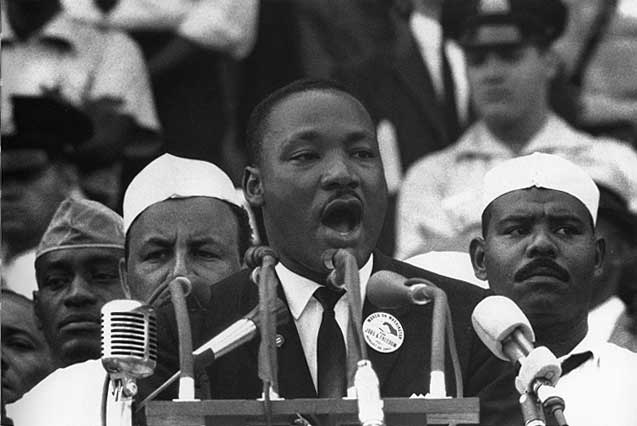Dr. Martin Luther King Jr.
(1929-1968) Baptist Pastor and civil rights activist who led peaceful marches and won the Nobel Peace Prize.
Martin Luther King Jr. married Coretta Scott on June 18, 1953, on the lawn of her parents' house in her hometown of Heiberger, Alabama.
At the age of 25 in 1954, he became pastor of the Dexter Avenue Baptist Church in Montgomery, Alabama. King received his PhD degree in Systematic Theology from Boston University on June 5, 1955.
On December 1, 1955, Rosa Parks was arrested for refusing to give up her seat on a city bus. This led to the Montgomery bus boycott. The boycott lasted for 385 days, and the situation became so tense that King's house was bombed.
The controversy ended when the United States District Court issued a ruling in Browder v. Gayle that prohibited racial segregation on all Montgomery public buses. Blacks resumed riding the buses again and were able to sit in the front with full legal authorization.
In December 1959, after being based in Montgomery for five years, King returned to Atlanta where he served as Co-Pastor with his father at the Ebenezer Baptist Church.
During October 1960, Dr. King participated in a sit-in at the restaurant inside Rich's, Atlanta's largest department store. The sit-in was intended to desegregate businesses and public spaces in Atlanta.
Dr. King was among the many arrested that day, but he was singled out and sentenced to four months of hard labor at Georgia State Prison. Pressure brought by John and Robert Kennedy on state authorities, however, proved effective, and King was released early.
The Albany Movement consisted of nonviolent desegregation protests in Albany, Georgia. During these protests, Dr. King was swept up in a mass arrest of peaceful demonstrators. He was sentenced to forty-five days in jail, but Billy Graham bailed King out of jail after only three days.
King led the Southern Christian Leadership Conference (SCLC).
In April 1963, the SCLC began a campaign against racial segregation and economic injustice in Birmingham, Alabama. During the protests, the Birmingham Police Department used high-pressure water jets and police dogs against protesters.
Footage of the police response was broadcast on national television news and dominated the nation's attention. The campaign was a success: the Jim Crow (segregation) signs came down, and public places became more open to blacks.
More than a quarter of a million people attended the 1963 March on Washington event, sprawling from the steps of the Lincoln Memorial onto the National Mall. There, Martin Luther King Jr. gave his famous "I Have a Dream" speech.
In 1968, King and the SCLC organized the "Poor People's Campaign" to address issues of economic justice.
King traveled the country to assemble "a multiracial army of the poor" that would march on Washington to engage in nonviolent civil disobedience at the Capitol until Congress created an "economic bill of rights" for poor Americans. King opposed the Vietnam War, but his opposition cost him the support of President Johnson and Billy Graham. He guarded his language in public but in private he sometimes spoke of his support for social democracy and democratic socialism. Martin Luther King was assassinated on April 4, 1968, in Memphis, Tennessee. His death was followed by national mourning.
King organized and led marches for blacks' right to vote, desegregation, labor rights, and other basic civil rights. Most of these rights were successfully enacted into the law of the United States with the passage of the Civil Rights Act of 1964 and the 1965 Voting Rights Act. King won the 1964 Nobel Peace Prize for combating racial inequality through nonviolent resistance. Dr. Martin Luther King Jr. significantly changed society in the United States, and so he is a towering figure in American History.
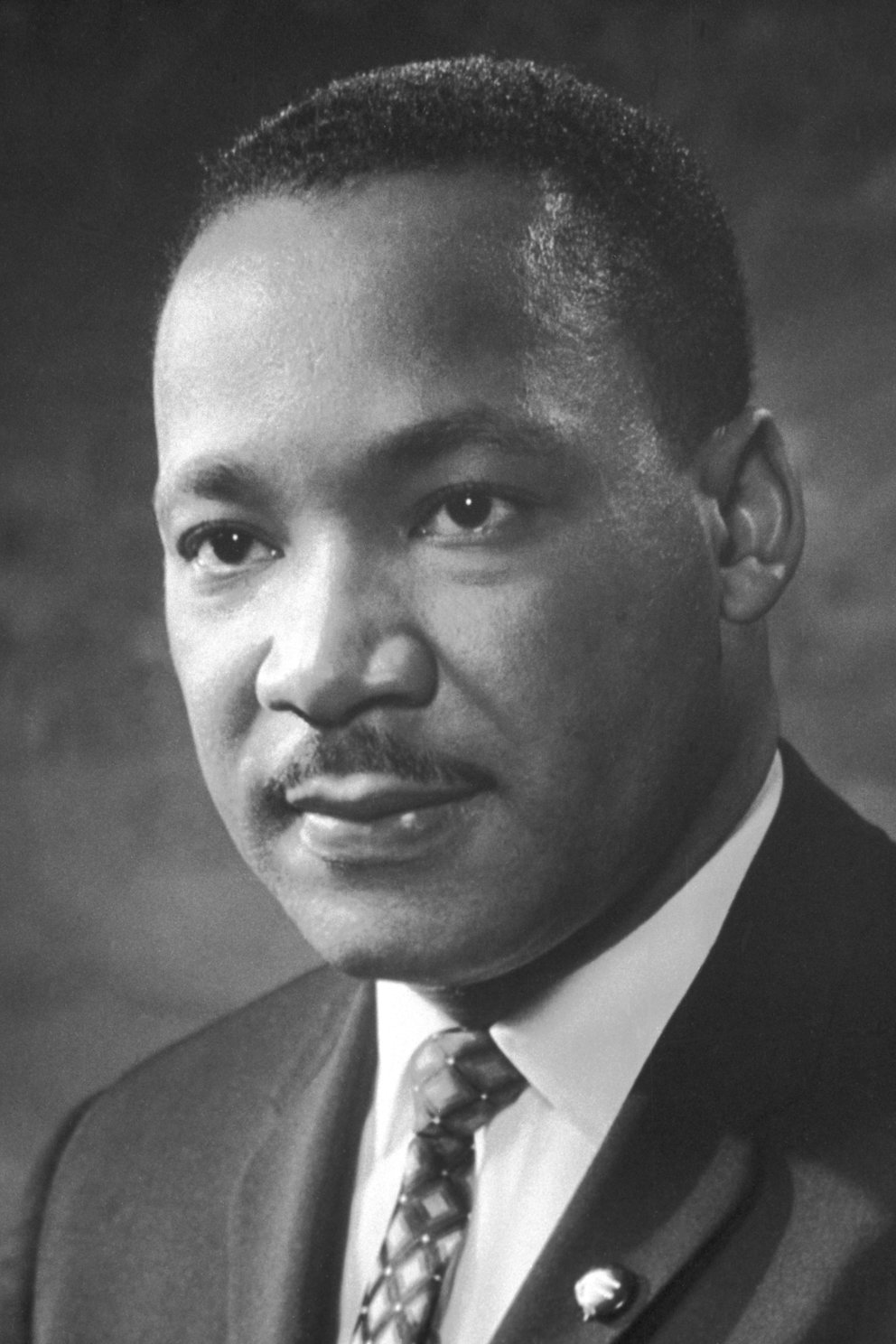
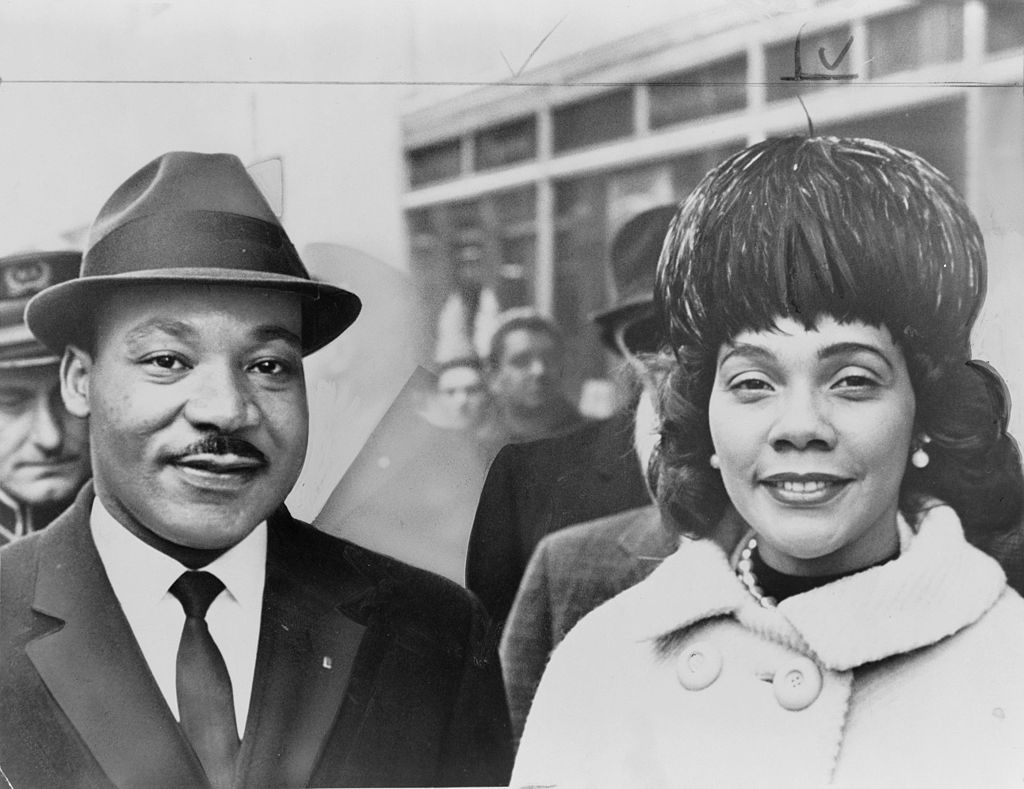
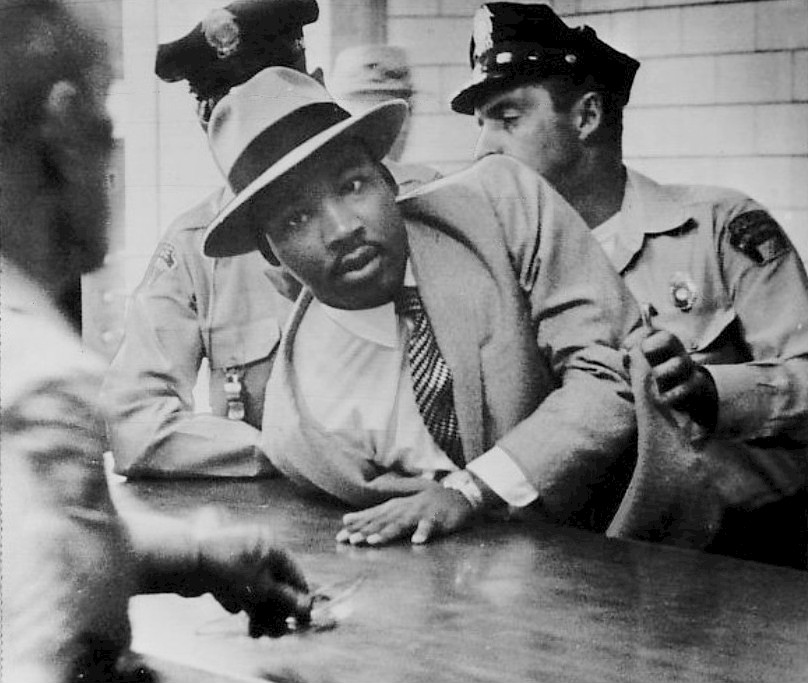
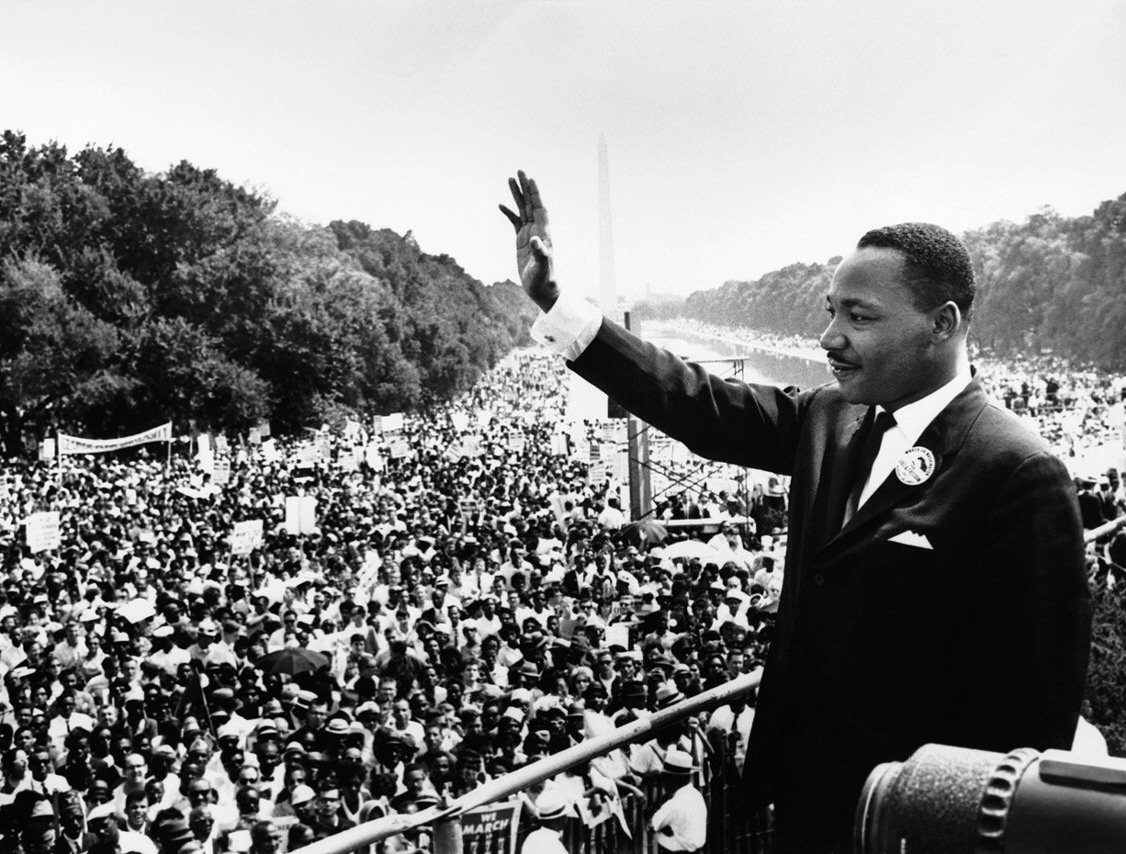
.jpg)
